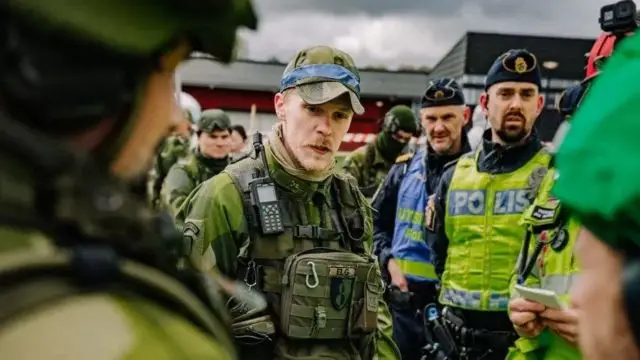Sweden deploys the army to combat crime

Sweden has been hit by a wave of criminality, and in response, the government has decided to enlist the help of the military. Prime Minister Ulf Kristersson announced this extraordinary initiative after the country witnessed a sharp increase in attacks, including the use of firearms and explosive devices.
Recent data shows that in just one week, two young men were killed in Stockholm, and a 24-year-old teacher, Soha Saad, died in an explosion at her home. The police suspect that this explosion was intended for someone else, and the teacher had no involvement in criminal activities, reported by BBC News Ukraine
In September 2023, due to the actions of armed gangs, 12 people lost their lives, marking the highest figure since December 2019. As a result, the government made the decision to involve the military in supporting the police in their fight against criminality. The army will provide assistance in data analysis, logistics, forensic expertise, and handling explosive materials.
Given the complex situation, Prime Minister Kristersson also emphasized the need to expand the military's powers. He noted that the crisis in Sweden is unprecedented, and there is no other European country facing similar challenges.
Prime Minister Ulf Kristersson leads a center-right government that lacks a majority in parliament. He came to power last year with the support of the anti-immigrant party "Swedish Democrats" but has been unable to address the persistent issue of crime in the country.
The rise in criminality in Sweden is associated with an internal conflict within a criminal gang known as "Foxtrot." This network has split into two conflicting factions, which consistently clash with each other.
The police have found that local gangs increasingly involve children in criminal activities since young people under the age of 18 receive light sentences or even escape punishment. Even younger children, some as young as 10, are being drawn into drug trafficking, and the number of those using firearms with deadly consequences is increasing.
Illegal firearms are relatively easy to obtain in Sweden, mainly coming from Balkan countries. Authorities believe that children and bystanders are becoming unintended victims of internal gang conflicts.
Last year, more than 60 people died in shootouts in Sweden, marking the highest number in the country's history. The situation is expected to remain grim in 2023.
A government report published in 2021 indicates that in Sweden, four out of a million residents die each year in shootings, significantly higher than the European average of 1.6 per million. The police link the increase in violence to the stark disparities between rich and poor segments of society, poor migrant integration, and the proliferation of drugs.
The Prime Minister has promised to strengthen police surveillance, toughen penalties for firearm offenses, and is considering enhanced state control over the deportation of migrants involved in criminal activities. However, some critics believe that these measures do not address the underlying social problems at the root of this crisis: child poverty and underfunded public infrastructure.
The Swedish government faces a challenging task in combating rising crime and violence in the country. The deployment of the military is one of the radical measures to ensure security and restore public order in the country, but whether it will be an effective long-term solution remains a subject for further discussion.









